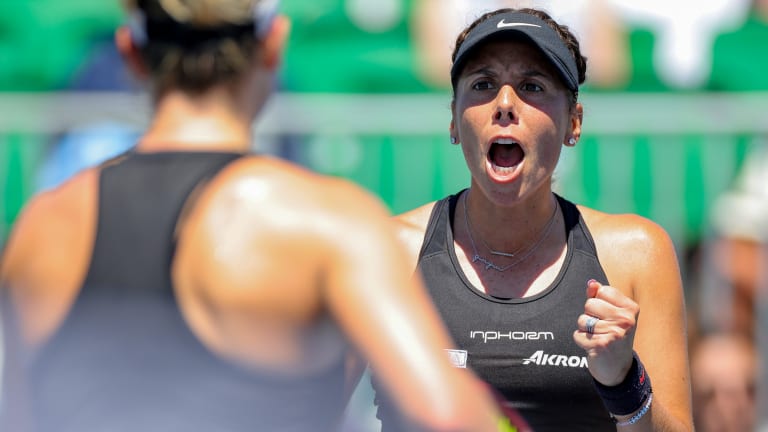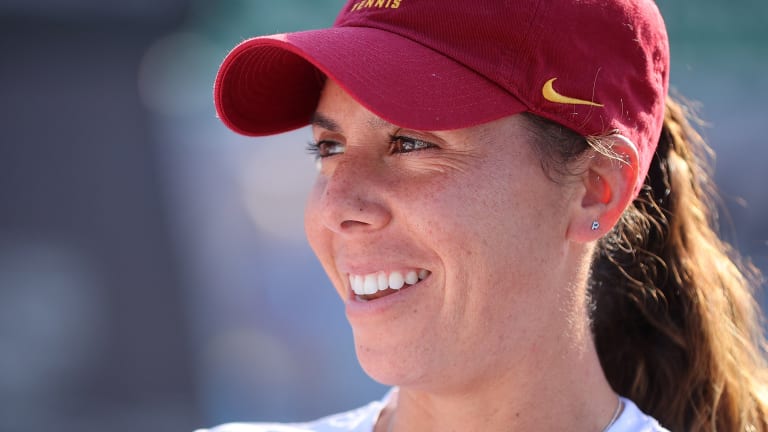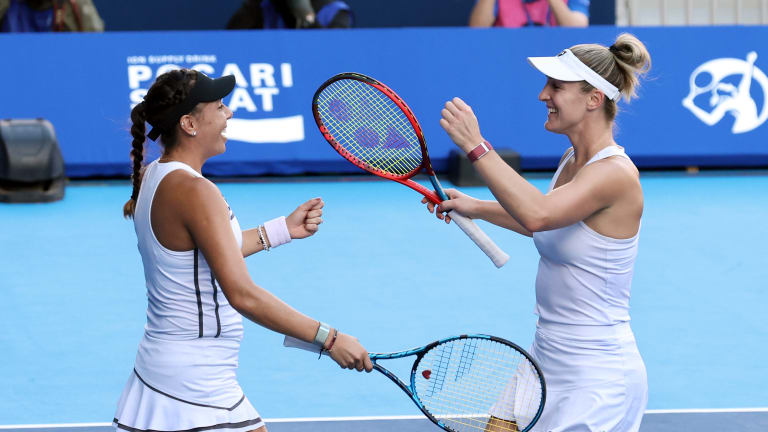WTA Finals
Love at First Fight: Giuliana Olmos plays for her college, her country, and her chance to shape an impactful future
By Nov 01, 2022WTA Finals
How Elena Rybakina rose to a "challenging" 2025 with WTA Finals victory
By Nov 09, 2025WTA Finals
Elena Rybakina finishes 2025 resurgence by beating world No. 1 Aryna Sabalenka to win WTA Finals
By Nov 08, 2025WTA Finals
WTA Finals Final: Sabalenka vs. Rybakina | Where to Watch
By Nov 08, 2025WTA Finals
Aryna Sabalenka finds the answers against Amanda Anisimova to reach second WTA Finals final
By Nov 07, 2025WTA Finals
Elena Rybakina rallies to defeat Jessica Pegula in WTA Finals semifinals
By Nov 07, 2025WTA Finals
WTA Finals Day 7: Pegula vs. Rybakina and Sabalenka vs. Anisimova | Where to Watch
By Nov 07, 2025WTA Finals
"I feel like I belong": Amanda Anisimova builds on career breakthrough at debut WTA Finals
By Nov 06, 2025WTA Finals
Aryna Sabalenka eliminates Coco Gauff from WTA Finals, joins Jessica Pegula in semifinals
By Nov 06, 2025WTA Finals
WTA Finals Day 6: Pegula vs. Paolini and Sabalenka vs. Gauff | Where to Watch
By Nov 05, 2025Love at First Fight: Giuliana Olmos plays for her college, her country, and her chance to shape an impactful future
How the Mexican found her own path on the journey to doubles stardom.
Published Nov 01, 2022
Advertising

Olmos' passion for doubles tennis is palpable.
© Getty Images
Advertising
Advertising

“Being able to represent USC and Mexico are probably my proudest accomplishments,” Olmos says.
© All rights reserved 2021 GETTY IMAGES
Advertising

Olmos and Dabrowski have reached the WTA Finals before, but never as teammates.
© Getty Images